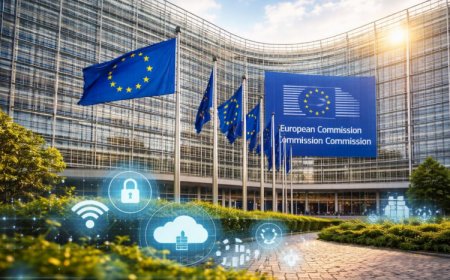Data Protection Bill Faces Scrutiny as Privacy Advocates Demand Revisions
Data Protection Bill Faces Scrutiny as Privacy Advocates Demand Revisions

Data Protection Bill has become the focal point of an intense debate among technology experts, privacy advocates, and legal analysts, as its provisions are dissected to understand their implications for user privacy and government surveillance.
While the Bill aims to establish a comprehensive framework for handling personal data in an increasingly digital world, critics argue that certain provisions could undermine its stated purpose, sparking a heated discourse about the balance between privacy, security, and innovation.
At its core, the Data Protection Bill introduces guidelines for how personal data should be collected, processed, and stored by entities operating in various sectors. It establishes rights for individuals, granting them greater control over their personal data and mandating organizations to comply with stringent requirements to ensure transparency and accountability. However, the Bill's provisions related to government access to data have raised significant concerns. Privacy advocates have highlighted that exemptions provided to government agencies could create loopholes that allow for unchecked surveillance. The language used in these exemptions, which includes terms such as "national security" and "public order," has been criticized for being vague and open to interpretation, potentially leading to misuse.
The surveillance debate is not new, but the Data Protection Bill has reignited discussions on the extent to which governments should have access to personal data in the name of security. Proponents of the Bill argue that granting such access is necessary to address threats like cyberattacks, terrorism, and other forms of crime in a rapidly evolving technological landscape. They contend that the exemptions are not meant to undermine privacy but to ensure that law enforcement and intelligence agencies have the tools needed to protect citizens and maintain stability.
On the other hand, privacy advocates assert that surveillance powers without robust safeguards could erode trust between citizens and the state. They emphasize the importance of establishing clear oversight mechanisms, such as independent bodies or judicial approvals, to prevent abuse of these powers. Without such measures, they argue, individuals could face unwarranted intrusion into their private lives, and dissenting voices could be silenced, stifling free expression and democratic processes. For many advocates, the issue boils down to a question of proportionality: how to strike the right balance between safeguarding national security and upholding fundamental rights to privacy.
Beyond government surveillance, the Bill has also drawn criticism for certain provisions affecting private entities. Tech companies and digital service providers have raised concerns about compliance costs and the potential impact on innovation. Some provisions mandate data localization, requiring companies to store sensitive personal data within the country’s borders. While this is framed as a move to enhance data security and ensure sovereignty, critics argue that it could increase operational costs, particularly for smaller businesses, and hinder cross-border data flows, which are essential for global digital commerce.
Moreover, the Bill introduces steep penalties for non-compliance, a measure that has drawn mixed reactions. On one hand, stringent penalties are seen as a necessary deterrent to ensure organizations take data protection seriously. On the other hand, some stakeholders worry that these measures could disproportionately affect startups and small businesses that may lack the resources to meet all regulatory requirements immediately. They advocate for a more phased approach to implementation, allowing smaller players time to adapt without facing punitive measures.
Another contentious aspect of the Bill is its approach to consent. While it introduces provisions requiring organizations to obtain explicit consent from individuals before collecting their data, critics argue that the Bill fails to address the issue of "informed consent." In a world where digital services are often provided under lengthy and complex terms and conditions, individuals may not fully understand what they are consenting to. Advocates for stronger privacy protections have called for clearer, user-friendly disclosures and mechanisms that allow individuals to easily withdraw consent.
Civil society organizations have also pointed out the absence of robust protections for children’s data. While the Bill includes certain provisions for safeguarding the privacy of minors, critics argue that these measures fall short of global best practices. They stress the need for stricter regulations to prevent the exploitation of children’s data, particularly in the context of targeted advertising and online platforms that collect vast amounts of behavioral data.
Despite the criticism, the Bill is not without its merits. Many experts have lauded its attempt to establish a comprehensive data protection framework in a country where such regulations have been long overdue. The provisions related to data breach notifications, data minimization, and the right to be forgotten are seen as positive steps towards empowering individuals and ensuring accountability among organizations. The establishment of a Data Protection Authority (DPA) to oversee the implementation of the law has also been welcomed, though its independence and effectiveness remain key concerns.
As the Bill undergoes further scrutiny in legislative forums, calls for revisions are growing louder. Privacy advocates, industry stakeholders, and civil society organizations are urging policymakers to address the gaps and ambiguities in the current draft. Many believe that incorporating feedback from a diverse range of stakeholders will be crucial to crafting a law that is not only effective but also equitable and forward-looking.
One proposed revision is the inclusion of more explicit safeguards against government overreach. This could involve setting up independent oversight bodies, specifying the conditions under which surveillance can be authorized, and ensuring that such actions are subject to judicial review. Another suggestion is to revisit the data localization requirement to strike a balance between national security concerns and the operational needs of global businesses. Critics have also called for greater clarity on provisions related to consent and data processing to ensure that individuals can exercise meaningful control over their personal information.
















































